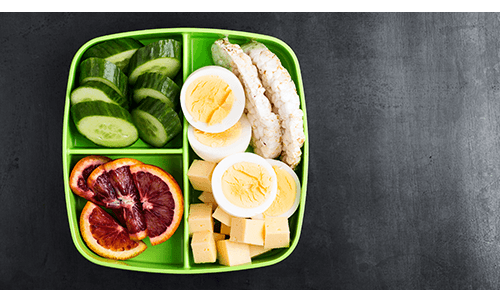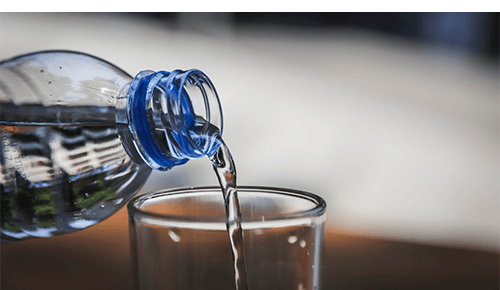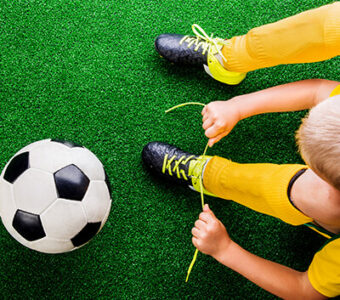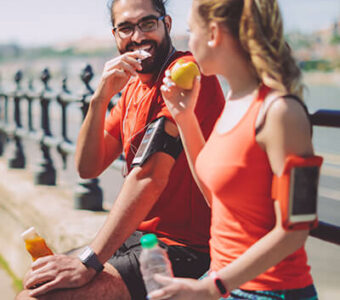As summer winds down, a new set of activities ramps up with the start of school. School hallways and classrooms aren’t the only places packed with students. Student athletes fill courts, fields and locker rooms, trying to focus on performing well in the classroom and in their sport.
OhioHealth Sports Medicine manager Chris Hite shares tips on how parents can help their student athletes stay on top of their game in the classroom and on the field or court. an athletic trainer, Hite has provided athletes everything from first aid to rehabilitation for injuries to education and information on an athlete’s physical and mental demands.
Hite says the key to students optimizing their school work and teamwork is pretty simple. It comes down to three things: eat well, sleep well and drink well. But he sees firsthand that it’s easier said than done. Here’s how he breaks them down:

Eat Well
During their sports season, athletes need to consume more calories. That means eating at least three healthy meals and having a sandwich, granola bar, or fruit before practice.
“Kids come to me and say they’re not feeling well, and I find out they didn’t eat breakfast and had French fries and a Coke for lunch,” says Hite. “They’re basically trying to run four miles in practice on what they had for dinner the night before.” He adds that the calories student athletes take in need to be smart. Parents play a significant role in making that happen.
“Get rid of the sodas and candy — wasted, empty calories — in the house,” says Hite. “Feed them proper meals. We’re looking for lean protein, carbohydrates like whole grains, and fruits and vegetables. Even though fast food is convenient and saves time, it’s not fuel for sports, or for good health for that matter.”

Sleep Well
Teenagers need eight to 10 hours of sleep per night to function at their best. During sleep, the body isn’t just at rest; it’s busy rebuilding, repairing, reorganizing and regenerating. That’s why sleep is even more important for student athletes, whose bodies are working hard to recover and rebuild after tough workouts and games.
A National Collegiate Athletic Association study showed that one-third of student athletes get fewer than seven hours of sleep a night. Hite says that school, practice, late games and homework have many student athletes staying up until 1 a.m., then dragging themselves out of bed five hours later. Shorting the body of needed sleep affects hormones that control stress, hunger and appetite, growth and healing, and biological rhythms. Making sleep a priority can help student athletes better manage their health, stress, time and performance.

Drink Well
Staying hydrated is one of the easiest ways to take care of the body, but it’s often something student athletes have the hardest time doing.
“We have so many kids come in our office who are struggling with dehydration,” says Hite. “Staying hydrated affects their physical health, how they think, and their attitude. Besides sleep, water is the thing we see student athletes having the most trouble getting enough of.”
Hot days on the field and in humid gyms cause a lot of sweating, which means an even greater need to keep the water flowing. Student athletes need to get the minimum water their bodies need, along with replacing what they’ve lost through exercise. The American Council on Exercise recommends drinking the following amount of water before, during and after exercise:
- 17-20 ounces two-three hours before exercise
- 8 ounces 20-30 minutes before or during your warm-up
- 7-10 ounces every 10-20 minutes during exercise
- At least 8 ounces within 30 minutes after exercise
Water is the best way to stay hydrated, though the calories and potassium in sports drinks may be helpful if a practice or a game lasts longer than an hour. Stay away from sports drinks that are high in sugar, have caffeine or a laundry list of added ingredients.





